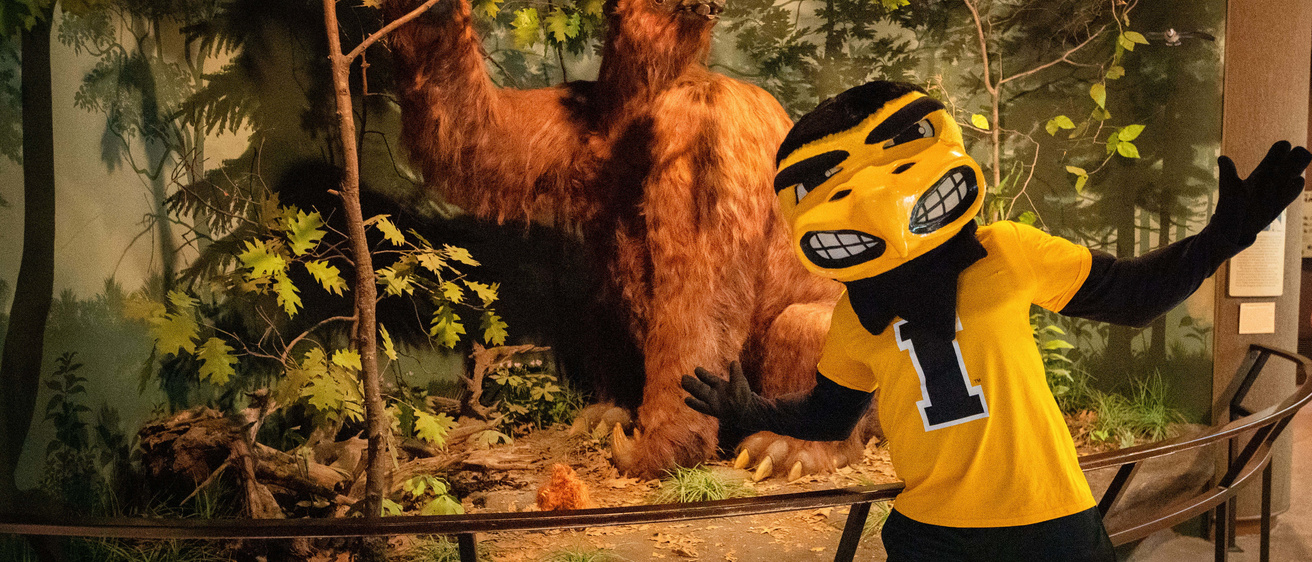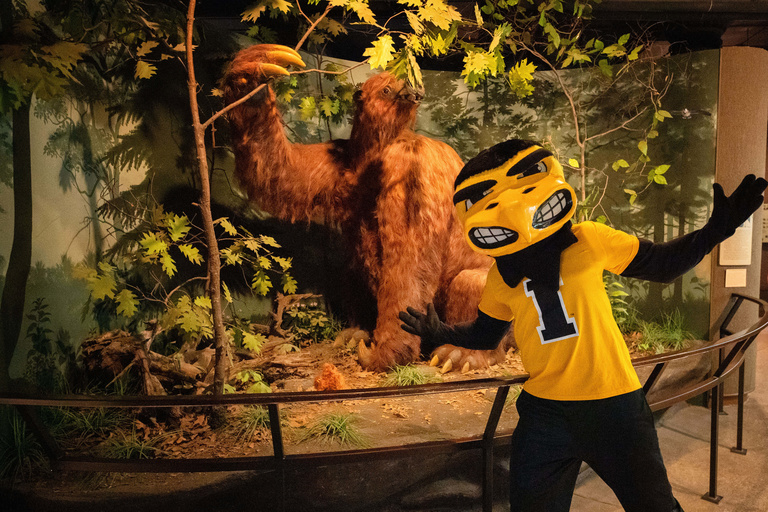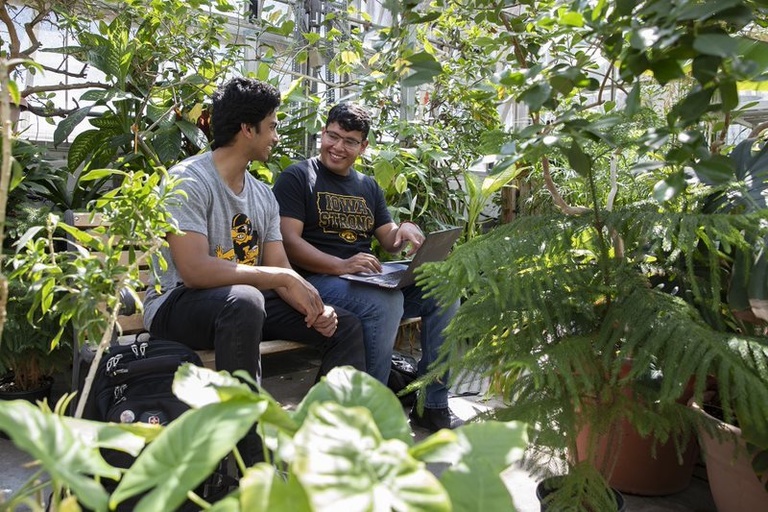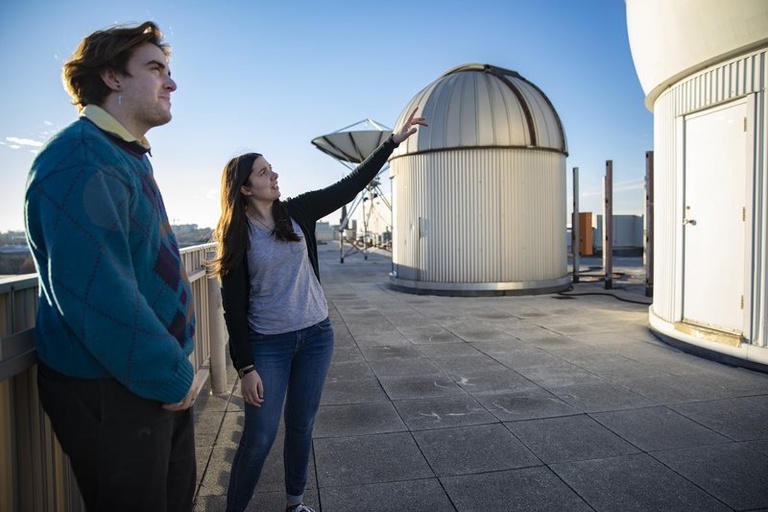Whether you’ve lived in Iowa City for months or decades, you may not realize you have access to these unique experiences—and admission is free.
Van Allen Observatory
Come see the stars. Constructed in 1972, the Van Allen Observatory is open to students and community members.
Van Allen Observatories Manager Dr. Caroline Roberts says all are welcome to see the natural art created in space. Iowa is unique in that its facility is named after one of the greats of space science, the Physics and Astronomy Department’s Professor James Van Allen.
“When you look through a telescope and you see the wispy features of a Nebula or you take images in different colors, and you combine them into a colorful image of a galaxy or a planet, you truly have beautiful scenes right in front of you,” Roberts says.
Most large universities feature an observatory on campus, but Iowa is unique in that it opens its space to everyone.
“Having a small campus observatory means that our undergraduate students can receive the education they deserve,” Roberts says. “And it means that members of the public can continue to be excited by science in their own backyard.”
The observatory will host its fall 2022 Public Observing Nights on Sept. 23, from 8-10 p.m.; Friday, Oct. 7, from 8-10 p.m., Thursday, Oct. 13, from 8-10 p.m., and a Lunar Eclipse viewing on Tuesday, Nov. 8, from 4-6 a.m.
Biology Greenhouse
Located on the fourth floor of Biology Building East, overlooking downtown Iowa City, is this green oasis.
While you will likely find current and future biologists studying and working here, this indoor green space is open to everyone—and it can be a sanctuary during Iowa’s long, grey winters.
“The greenhouse provides support to research, teaching, and leisure. People enjoy the plants in the environment on a year-round basis. It is another connection to nature in an urban setting,” Biology Greenhouse Manager Ray Tallent says.
The greenhouse features many plants, allowing students to study, but also view for artistic use.
“We host a variety of course visits in creative fields such as drawing, creative writing, dance, and photography. On a less formal basis, people may visit on their own for relaxation, reflection, meditation, inspiration,” Tallent explains.
Pentacrest Museums
Two public museums are located the heart of the UI campus—the Old Capitol Museum and the Museum of Natural History.
As the crown jewel of the University of Iowa campus, the Old Capitol building is far from a secret. However, some may not realize it is also a public museum with expansive exhibits that detail the rich history of the university and state of Iowa.
“There's so much to experience and learn about our historical, cultural, natural, government, and university history,” Pentacrest Museums' Communications Coordinator Jessica Smith says.
Macbride Hall is home to the UI Museum of Natural History, with fascinating exhibits featuring mammals, birds, fossils, plants, and more. This museum is popular with campus and community visitors alike, for fun programs, field trips, or just roaming around. When you visit, don’t miss the UI’s alternative mascot, Rusty the Giant Sloth.
“In many ways I think we are the front door to the university,” Smith explains. “Whether on an admissions tour, exploring Iowa City as a tourist destination, or visiting on a field trip, we’re proud to be your first stop.”
The museums are open Wednesday-Saturday from 10 a.m. to 5 p.m. and are closed on Sunday-Tuesday. Admission to both museums is always free at the door.



